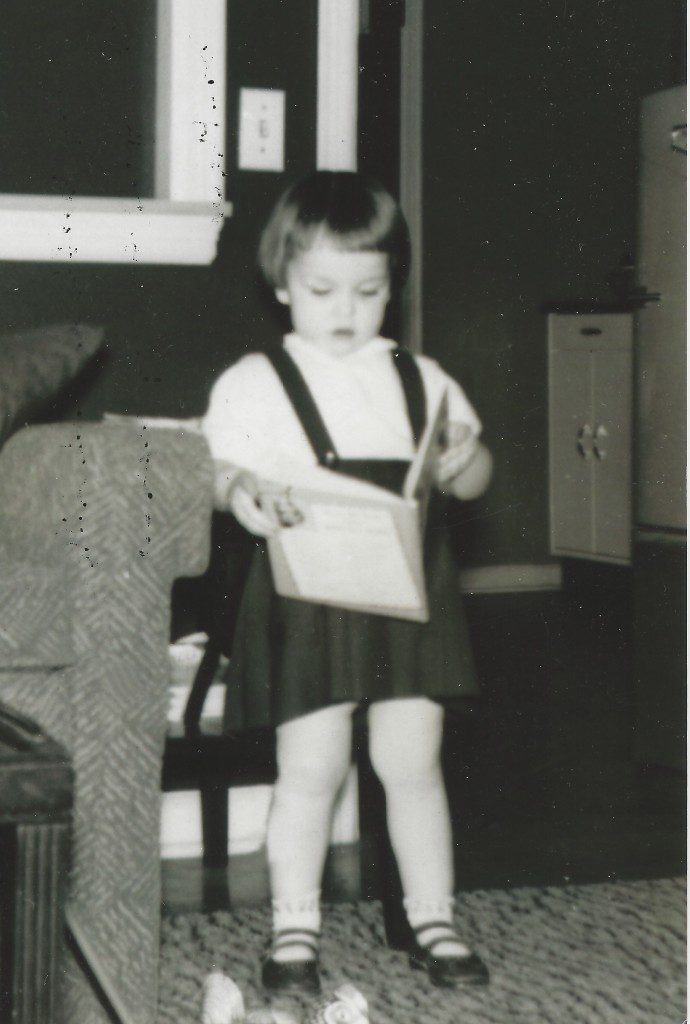
If you’re an active writer and/or reader from this part of the world, you probably have an idea of how much we all owe Teresa Miller.
As executive director of the Center for Poets and Writers at OSU-Tulsa, as host of the even longer-lived TV program Writing Out Loud (currently airing Mondays at 10:30 p.m. over OETA) and, of course, as a noted author herself, Miller has been relentlessly enriching the lives of those with a literary bent for more than two decades.
Since she’s leaving the Center for Poets and Writers in a few months to pursue, as she terms it, “an unexpected opportunity to do another novel,” this seems like a good time to not only celebrate Teresa Miller, but also to take a look at how she came to be such a force in literature and the arts.
We’ll start in Tahlequah, her hometown, a place she admits she “didn’t really appreciate.
“I was dreaming about living in other places and having experiences in writing and in acting,” she explains, “which was my main interest when I was a kid.”
After going through the Tahlequah school system, she acted on her dreams, heading to New York to study at the well-known American Academy of Dramatic Arts.

“Acting was my first choice as a career,” reflects Miller. “I just didn’t have any aptitude for it. I didn’t fit in at all. So my instructors asked if there was any other profession I’d considered. I said – and I got a lot of encouragement,” she notes with a laugh. “They were the first big boosters of my becoming a writer.”
In fact, by that time she’d been writing for years. At 17, while still living in Tahlequah, she’d submitted a play of hers, The Tragical History of America, to a theatrical agent in New York.
“Talk about ambitious,” she says with another laugh. “It was written as a Greek play with a chorus and everything. She was a top agent and was really interested in it until she found out where I lived and how old I was, and then she pretty much tossed it aside.”
In her early 20s, Miller began her first novel. A couple of years later, an agent picked it up out of the agency’s slush pile (the term for a stack of unsolicited manuscripts), took it home to read over the weekend and came back to work impressed.
“She called me and told me she could sell it,” Miller recalls. “I thought there had to be some catch, but they sold it to Playboy Enterprises, and it ended up under the imprint name of Seaview Press. I didn’t realize that Seaview was Playboy until I got a check with an embossed bunny in the corner. That was not something my grandmother was too keen on, but any moral reserve she had about it was compensated for by the fact that there was actually money coming in.”
Having returned to Tahlequah after her AADA experience, Miller was called to New York once again to do publicity for the book. Titled Remnants of Glory, it was a multigenerational novel loosely based on some of her grandmother’s stories and experiences, and it created a considerable stir.
“There were real high expectations for it,” she says. “One of my agents thought they could bill it as the American version of The Thorn Birds. People were interested in it for a movie. People like [renowned writers] Alice Munro and John Gardner read it and liked it. Everyone was very much looking forward to my second book. And I developed a writer’s block.
“I’d told my grandmother’s story – in fiction, of course – but I’d used it as a basis. I had owned her words, but I hadn’t owned my own words yet. I needed to grow as a writer, and I was so intimidated by the process and fearful of making mistakes that I just couldn’t step up and be the writer I needed to be.”
It would be years before Miller completed another book. Meanwhile, she became a writing and literature instructor, and the early ‘90s found her teaching at Rogers State College in Claremore. There, she developed a campus radio show with some of her creative writing students, which turned out to be the precursor to her highly successful Writing Out Loud TV program, which debuted a little later on RSC-TV.
“At that time, we did 15-minute segments that they could wedge between shows, and they were live,” she recalls, referring to the television program. “We were such a low-budget operation that we just had these lawn chairs, without any cushions. Our first guest was Joe Carter, from the Will Rogers Memorial, and he was too polite to say anything. But then we had the children’s author Bessie Holland Heck, and after it was over, she said, ‘You know, if you don’t get yourself some better chairs, your people are going to get waffle butt!’”[pullquote]So I’ve come full circle. I started as a writer – that’s what made all of this possible – and now, all these different connections and my work through the Center have made it possible for me to become a writer again.”[/pullquote]
All of the RSC instructors at the time were required to develop special projects in addition to their classroom work, and that mandate gave Miller the excuse to address something she felt was lacking in her own life.
“I couldn’t write at that stage, but I missed writers,” she explains. “What I longed for in my own life was the company of writers. So my first thought was, ‘Well, I’ll do a book festival.’ I had a friend who’d done book festivals in Tahlequah for years, and I’d help with them, and I thought, ‘I ought to be able to do that here.’ I began by inviting a lot of people who’d been on the show, and they recommended other people. So for our first festival we had 30 nationally known writers and a surprisingly good turnout.”
That happened in 1995, with Miller organizing it under the name The Oklahoma Center for Writers. In subsequent years, she, the organization and the Celebration of Books moved to what was then known as the University Center at Tulsa, then to the University of Oklahoma in Norman and finally to OSU-Tulsa, her base of operations for the past 17 years. Although she stopped doing the Celebration of Books several years ago in favor of events that, she says, “focus on individual writers and their work,” The Center for Poets and Writers has continued to shine like a beacon over Oklahoma’s literary landscape. Guests at the center’s events have included more than a dozen Pulitzer Prize-winning authors, along with hundreds of other nationally known writers.
“Even though we brought in some wonderfully high-profile people like Maya Angelou, who was one of my favorites,” she notes, “it was with the hope that they would cast a spotlight on what we have here in Oklahoma – captivating, engaging authors that we too often take for granted.”
Her last event, in conjunction with Tulsa Town Hall, is an appearance by Sue Monk Kidd, author of The Secret Life of Bees, on Oct. 1. A few weeks later, Miller is scheduled to leave the OSU-Tulsa campus and the unique, invaluable literary outreach organization she created.
“It’s been wonderful, and I want to leave when it’s at the top,” she says. “I still intend to remain professionally active in the arts. But a lesson I’ve been trying to share is that if you want to write, now’s your time.
“So I’ve come full circle. I started as a writer – that’s what made all of this possible – and now, all these different connections and my work through the Center have made it possible for me to become a writer again. And in order to do my best work, I’m just going to have to make that a top priority.”






















